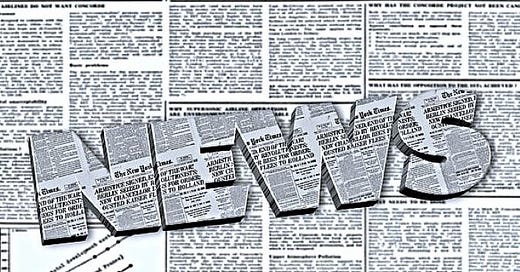“Honey, I Shrunk the Kids” was a 1989 Disney comedy about a scientist father who accidentally shrank—Disney took linguistic license with the title—his children in his lab. It was an entertaining tale.
It came to mind when I read that a New York Times columnist now acknowledges her paper was “badly misled” about the origins of the covid virus and, in turn, misled its readers. It was a case of “Honey, I Shrunk the Newspaper”—its credibility, that is. The Times and other legacy media took sides in a politico-health dispute, vouchsafing for the veracity of one side and lambasting and ridiculing the other. And they were wrong.
That’s not how the Times sees it, of course. “The Times has helped readers navigate the coronavirus pandemic through independent, verified reporting, and any insinuation that we have not thoroughly pursued leads is false,” a newspaper spokesman declares. Maybe it needs to hire reporters with better instincts about pursuing leads.
Covid reportage aside, media has generally ruined its brand. Many newspeople long chafed about being on the outside looking in, so when you-know-who got in the White House in 2016, they went all in. They tossed venerable newsroom rules about balanced reporting, fairness and separating factual material from opinion. They bragged about their biased narratives.
It got worse during the last four years. Only recently have some members of media looked back and acknowledged that, by golly, Joe Biden was a shadow of himself the entire time he was in the White House (and a shadow of Joe Biden isn’t much). And, lookie there, apparently easy entry along the southern border was an administrative decision—we missed seeing that somehow!
No wonder respect for legacy media shrank. Gallup says two-thirds of Americans today have little or no trust in what broadcast and print news organizations produce. That is, two out of three people. Some truth-seekers have turned to podcasters and independent journalists. While such reporters don’t have the resources of legacy media organizations, they still seem interested in keeping government honest, which is Job One.
What irks people is way too little accountability. If you climb on the wrong train and ride it till it arrives somewhere you don’t want to be, you admit your error and start walking back. There is too little walking back of errant reporting and mischievous policymaking. There seem to be no just deserts for such behavior besides a subsequent loss of viewers and readers.
Thomas Sowell, well-known conservative economist and commentator, is still sharp at almost 95 years of age. Over time, he has made some interesting observations. Here’s one: “It is hard to imagine a more stupid or more dangerous way of making decisions than by putting those decisions in the hands of people who pay no price for being wrong.” No personal responsibility, no comeuppance, big problem.
We all learn from our mistakes. When newspeople—and Washington bureaucrats—don’t have to acknowledge their mistakes, they don’t learn. They pay no price. We do.





Spot on!
Thank you for saying it!!